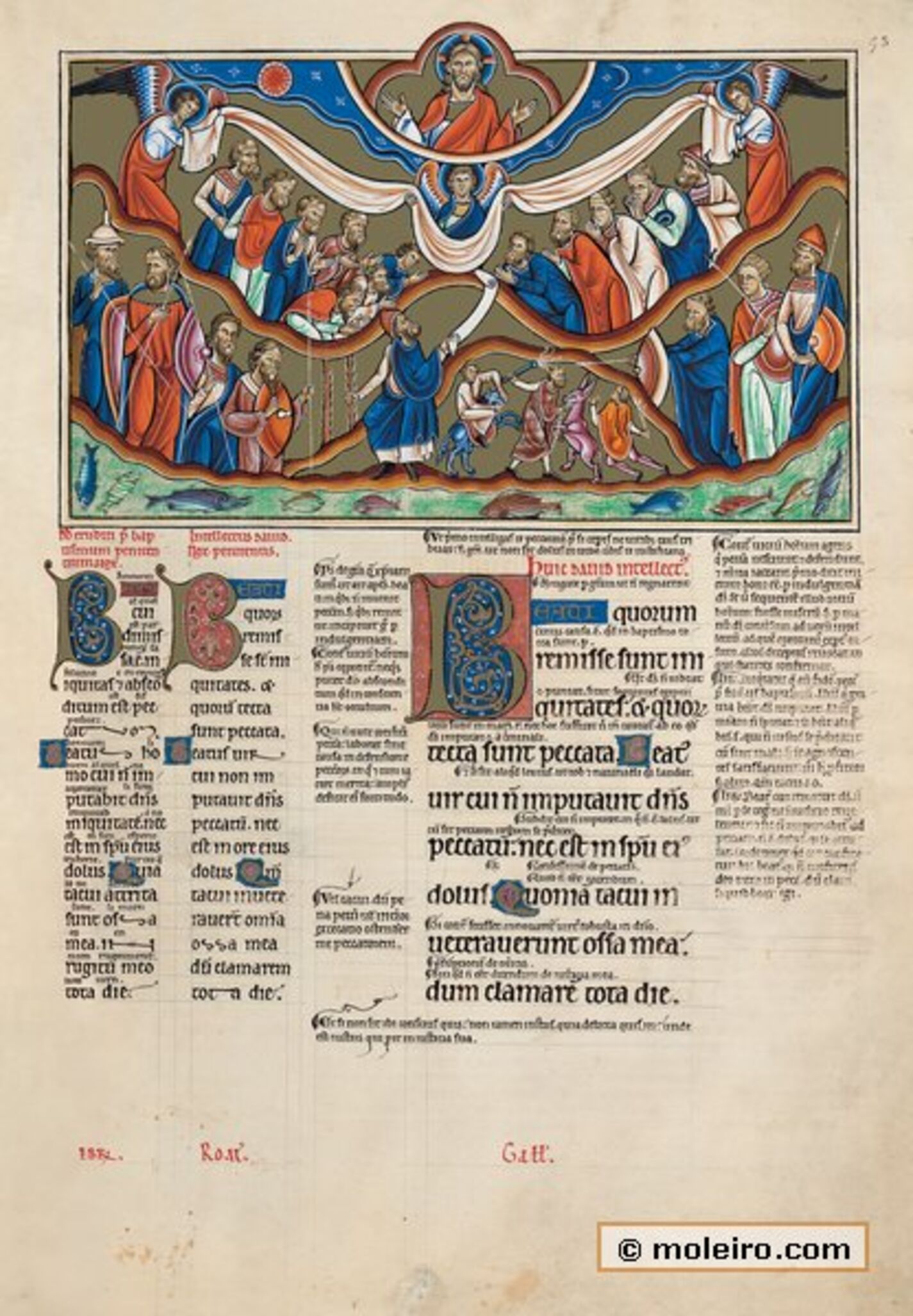This is one of the penitential psalms in which men confess their sins and are forgiven by God. Between the sun, moon and stars, a bust of God with arms extended presides over an almost symmetrical composition (v. 2, Beatus vir cui non imputavit Dominus peccatum // Blessed is the man to whom the Lord has imputed no sin; v. 4, Quoniam die ac nocte gravata est super me manus tua // For day and night your hand was heavy upon me). Below him three angels hold out a large white cloth over two groups of kneeling and standing men, the pardoned sinners (v. 1, Beati quorum remisse sunt iniquitates et quorum tecta sunt peccata // Blessed are they whose iniquities are forgiven, and whose sins are covered; v. 5, Delictum meum cognitum tibi fecI: et iniusticiam meam non abscondi. Dixi confitebor adversus me iniusticiam meam Domino, et tu remisisti impietatem peccati mei // I have acknowledged my sin to you, and my injustice I have not concealed. I said I will confess against myself my injustice to the Lord, and you have forgiven the wickedness of my sin). Below them, on either side, two groups of men are armed with shields and spears (v. 7, Tu es refugium meum a tribulatione que circumdedit me; exultatio mea erue me a circumdantibus me // You are my refuge from the trouble which has encompassed me; my joy, deliver me from them that surround me). In the middle sits the psalmist holding a thorny branch with one hand, from which he turns away, and a scroll in the other (v. 4, Conversus sum in erumpna mea dum configitur spina // I am turned in my anguish while the thorn is fastened). Beside him is a man on a rearing horse and two men attempting to control a wild mule with whip and stick (v. 9, Nolite fieri sicut equus et mulus quibus non est intellectus. In chamo et freno maxillas eorum constringe qui non approximant ad te // Do not become like the horse and mule that have no understanding. With bit and bridle bind fast their jaws who come not near you). Across the whole of the bottom of the picture are fish swimming in the sea (v. 6, in diluvio aquarum multarum ad eum non approximabunt // in a flood of mighty waters they shall not come near him).
